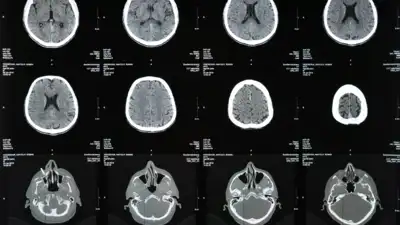Alzheimer’s disease affects millions of families worldwide, tearing at lives and memories in ways nothing else does. For many of us, the worry isn’t just for ourselves, it’s for aging parents, grandparents, and partners. The puzzling thing is that while some people follow all the lifestyle advice, eat well, stay social, exercise, avoid smoking they still develop Alzheimer’s, the most common form of dementia. Others, with risk factors, seem to dodge the diagnosis. What’s going on?
Prevalence of Alzheimer’s disease
As per data released by the World Health Organisation (WHO) and the Alzheimer’s Association, in the United States, about 7.2 million Americans aged 65 and older are living with Alzheimer’s disease in 2025, which corresponds to approximately 1 in 9 people in that age group having the disease. This prevalence increases with age, as the majority (74%) of those affected are 75 or older. Women represent nearly two-thirds of Alzheimer’s cases. Additionally, an estimated 200,000 Americans under age 65 have younger-onset dementia. The number of people affected is expected to grow significantly, reaching nearly 13 million by 2050. Globally, over 55 million people were living with dementia in 2020, with Alzheimer’s contributing to 60-70% of these casesNew research is zeroing in on something many of us take for granted: sleep. Specifically, how quickly we enter REM sleep—the dreaming, memory-processing part of our slumber might carry clues about Alzheimer’s risk.
The study that sparked interest
Researchers pored through data from 128 adults who underwent comprehensive sleep studies. These participants fell into three categories:
- 64 had been diagnosed with Alzheimer’s,
- 41 were classified with mild cognitive impairment,
- the rest showed typical cognitive health
Using overnight lab tests that tracked brainwaves, eye movements, and heart rate, the team focused on how long it took each person to reach the first REM cycle usually the most important for memory and emotional processing. They then compared this with scans showing levels of amyloid and tau, proteins that clump in the brain of someone developing Alzheimer’s.The key finding? People who took longer to reach REM often had higher levels of these proteins. In short, the delay in dreaming seemed linked to actual early Alzheimer’s biology even before memory loss showed up.The study was published in the journal Alzheimer’s & Dementia.
Why REM sleep matters?
You’ve probably heard that REM is where dreams happen. But what’s less talked about is how vital it is for memory and emotional health. Several studies suggest that monitoring and potentially improving REM sleep quality and timing might offer avenues for early detection and intervention in dementia risk and progression.People who get less REM sleep have a higher risk of developing dementia. A study following older adults found those who developed dementia spent about 17% of their sleep time in REM compared to 20% for those who did not, with each 1% reduction in REM sleep associated with a 9% increase in dementia risk.Longer latency to REM sleep (taking more time to enter REM sleep after falling asleep) is also associated with increased risk of dementia and Alzheimer’s disease. This delayed REM sleep may disrupt memory consolidation and increase stress hormones harmful to the brain’s memory centers.
So, what can you do?
Here’s the good news: You’re not powerless. There are real steps to support better REM sleep and overall brain health:
- Regular sleep schedule: Go to bed and wake up around the same time, even on weekends. It helps anchor your internal clock.
- Watch caffeine and alcohol: Yes, wine feels relaxing in the evening, but alcohol suppresses REM early in the night. Similarly, avoid coffee or tea after lunch if you’re sensitive.
- Move earlier in the day: Morning or midday activity can help reset body rhythms and promote better, deeper sleep.
- Wind down mindfully: Try a calm pre-bed routine: Reading, breathing, dim lights.
Screens and bright lights confuse your body’s sleep cues. - See a professional: Conditions like sleep apnea or restless legs can delay REM. A sleep study may uncover untreated issues.
Beyond sleep: Lifestyle matters too
No sleep plan fixes Alzheimer’s risk alone. But combined habits exercise, blood pressure control, and social connection create a healthier brain overall, according to guidance from the CDC: Stay active, manage blood sugar and blood pressure, treat hearing loss, avoid tobacco, drink alcohol in moderation. Put together with sleep improvements, these steps offer genuine hope for longevity and better brain function.
When to see a doctor
If you’re regularly fading before noon, struggling to stay alert, or suspect sleep disorders at night, talk to your doctor or sleep specialist. They can run a lab sleep study or recommend safe imaging to check for early brain changes all proactive steps, not symptoms to fear.No worries, no overthinking, just awareness. Improving your sleep isn’t just self-care it’s brain care. Aim for dark, cool nights. Avoid late-night screen scrolling. Treat sleep issues seriously. Talk to doctors. And if you worry in the dark, know that science is catching up and that early testing and lifestyle changes could make a difference.If your body and brain work better with a nightly reset, give them that chance. Good sleep, especially on time REM, could help the brain clean up better, feel sharper, and stay more resilient.



